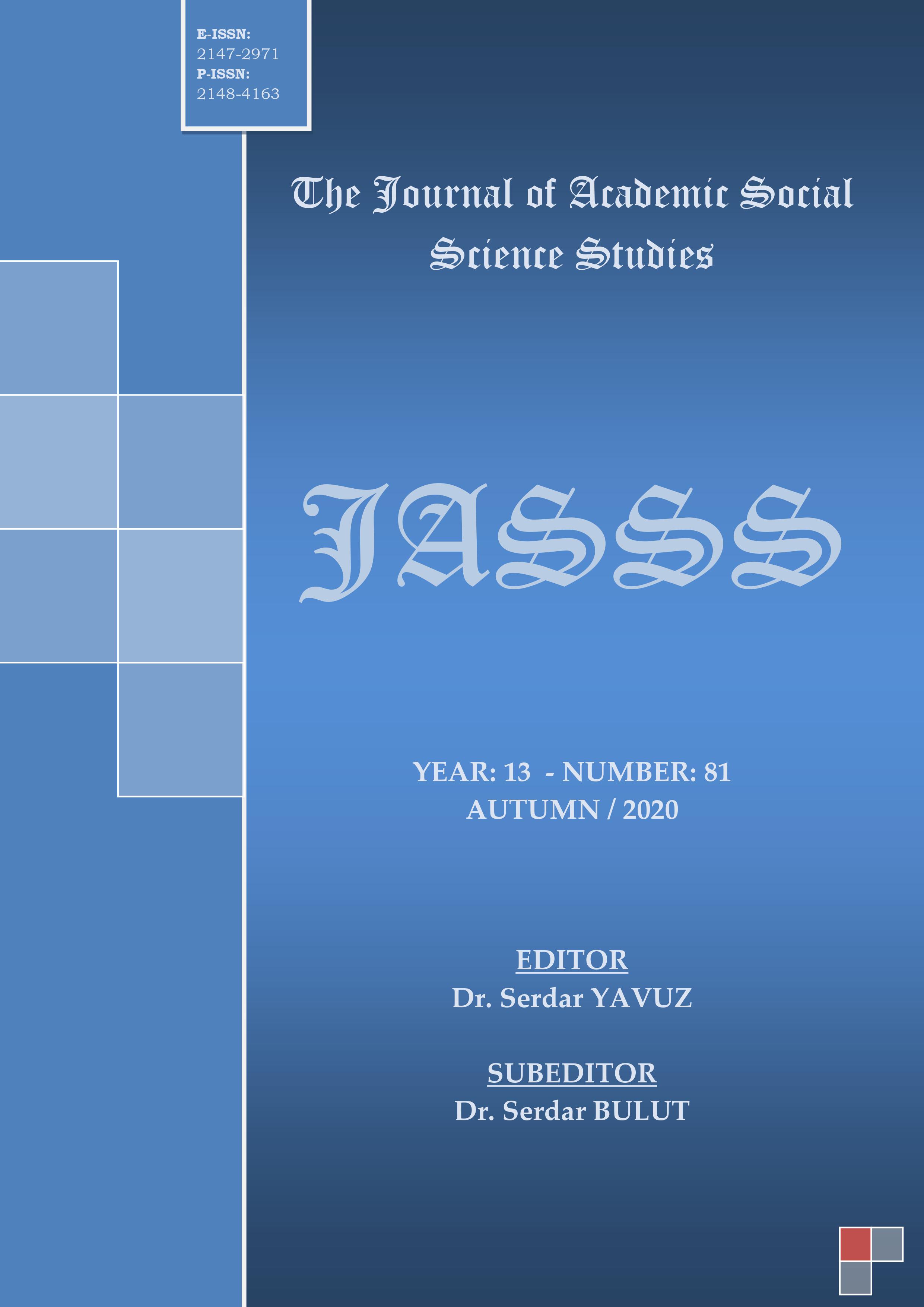İBN TEYMİYYE’NİN FELSEFÎ YÖNTEME İLİŞKİN ELEŞTİRİLERİ VE İSLAM FİLOZOFLARINI TEKFİR ETME GEREKÇELERİ
Author :
Abstract
İbn Teymiyye’nin İslam filozoflarına ve felsefeye yönelik yaklaşımını iki açıdan değerlendirmek mümkündür. Bunların ilki, felsefî yönteme ilişkin eleştirel tutumu, ikincisi ise teolojik meselelerde felsefecilerin sunduğu çözüm önerilerine yönelik reddiyeleridir. İbn Teymiyye’nin felsefî yönteme ilişkin eleştirilerinin üç noktada toplandığı görülmektedir. Bu eleştirilerin ilki, nakil karşısında akla verilen statü; ikincisi, naslarda tevilin gerekli görülmesi; üçüncüsü ise herhangi bir konuda doğruya ulaşmak için mantık ilminin yegâne yöntem olarak tespit edilmiş olmasıdır. İbn Teymiyye, bu konulardaki tutumlarından dolayı İslam filozoflarının bilgi temeline dayanmayan geçersiz bir zeminde düşünce ürettiklerini ileri sürmekte, bundan dolayı hatadan uzak kalamayacaklarını ifade etmektedir. İslam filozoflarının teolojik meselelerde ortaya koyduğu görüşlerden İbn Teymiyye’nin reddine konu olan hususların ise sekiz maddede toplandığı görülmektedir. Bu sekiz madde, âlemin kıdemi, Allah’ın cüz’îleri bilmemesi, meâdın (ahirette insanların bedenlerinin yeniden yaratılmasının) gerçekleşmeyeceği, peygamberlik, melekler, Allah’ın kelâmı, şefaat, Allah’ın meşîetinin ve kudretinin inkârı ile ilgili görüşleri içerir. İbn Teymiyye, İslam Filozoflarının bu sekiz konu ile ilgili görüşlerini detaylı olarak ortaya koymuş ve her bir konudaki görüşe dair eleştirilerini dile getirmiştir. Buna ilave olarak İslam filozoflarının bu konulardaki görüşleri sebebiyle küfre girdiklerini de açıklamalarına eklemiştir. Bu makalenin hedefi, İbn Teymiyye’nin felsefî yönteme ilişkin üç eleştirisini ve İslam Filozoflarını tekfir etmesine sebep teşkil eden teolojik konulardaki sekiz reddiyesini ele alıp incelemektir.
Keywords
Abstract
It is possible to evaluate Ibn Taymiyya’s approach to Islamic philosophers and philosophy in two ways. The first one is the critical attitude towards philosophical method, and the second one is the refusal to the solutions offered by philosophers on theological issues. It is seen that Ibn Taymiyya’s criticism of the philosophical method is collected in three points. The first one is the status given to the mind in the face of narration, the second one is the necessity for the interpretation regarding the Verses of the Quran and Hadiths (i.e. the nas), the third is that the science of logic was identified as the only method to reach accuracy in any subject. Ibn Taymiyya claims that Islamic philosophers produce thoughts on an invalid basis that is not based on the basis of knowledge because of their attitudes on these issues; and therefore, they cannot stay away from making mistakes. It is seen that the issues, which are the subject of the rejection of Ibn Taymiyya, were collected under eight items regarding the opinions that Islamic philosophers put forward on theological issues. These eight articles include the seniority of the universe, the fact that Allah does not know the particulars (i.e. the cuz), the fact that the “mead” “resurrection” (i.e. the recreation of the bodies of people in the Hereafter) will not take place, prophecy, the angels, the word of Allah, the intercession, the denial of Allah’s “mashiat” (i.e. the freedom of Allah in His actions) and his mightiness. Ibn Taymiyya detailed the opinions of Islamic Philosophers on these eight issues, and expressed his criticism on each issue. In addition, he also added that Islamic philosophers became disbelievers because of their opinions on these issues. The purpose of this article was to address and examine ibn Taymiyya’s three critiques on the philosophical method, and his eight rejections on theological issues that led to him to criticize Islamic philosophers.
Keywords
- Abrahamov, B. (2009). “Akıl-Nakil Uyumu Noktasında İbn Teymiyye’nin Yaklaşımı”, Çev. Salih Özer, Yıl: 4, Sayı: 1-2, 385-400.
- Aydın, H. (2003). “İbn Teymiye’ye Göre Kelâm ve Kelâmcılar”, Cumhuriyet Üniversitesi İlahiyat Fakültesi Dergisi, cilt: 7/1, 211-233.
- Çağırıcı, M. (1995). “İbn Teymiyye’nin Bakışıyla Gazzâlî-İbn Rüşd Tartışması”, İslâm Tetkikleri Dergisi, cilt: 9, 77-126.
- Deniz, G. (2014). “İbn Sina’da Ruhsal Diriliş ve Bazı İtirazlar”, Eskiyeni, 29, 103-120.
- Esen, M. (2001) “İbn Teymiyye’nin Kelâmullah Tartışmalarındaki Yeri”, Ankara üniversitesi İlâhiyat Fakültesi Dergisi, c. 42, 257-271.
- Hasırcı, N. (2010). İbn Teymiyye’nin Mantık Eleştirisi, Ankara: Ankara Okulu Yayınları.
- Hasırcı, N. (2014). “İbn Teymiyye’nin Mantık Eleştirisi”, Uluslararası 13. Yüzyılda Felsefe Sempozyumu Bildirileri, Ankara, 148. 132-149.
- Hûyî, A. Z. (2016). “Gazzâlî ve İbn Teymiyye”, Çev. Naim Döner, Artuklu Akademi, 3 (1), 151-170.
- Ilgaroğlu, M. C. ve Yaqoob, L. H. (2019). “Fârâbî ve Hocazâde‟nin Görüşleri Bağlamında Meâd Meselesi”, Manas Sosyal Araştırmalar Dergisi, 8 (4): 3085-3100.
- İbnü’l-Arabî, M. (2013). Fusûsu’l-Hikem, Çev. Ekrem Demirli, İstanbul: Kabalcı Yayıncılık.
- İbn Teymiyye, T. (1979). Der’u’t-Teâruzi’l-Akl ve’n-Nakl, Riyad: Câmiatü’l-İmam Muhammed b. Suud el- İslâmiyye.
- İbn Teymiyye, T. (1998). İktidâu’s-Sırâtı’l-Müstekîm li-Muhâlefeti Eshâbi’l-Cehîm, c. 1-2. Riyad: Dâru İşbîliye.
- İbn Teymiyye, T. (1996). İsim ve Sıfat Tevhidi, çev. Heyet, İstanbul: Tevhid Yayınları.
- İbn Teymiyye, T. (1999). Kaidetün Celîletün fi’t-Tevessüli ve’l-Vesîle, Riyad: Riâsetü İdârati’l-Buhûsi’l-İlmiyye ve’l-İftâi’l-İdârati’l-Âmme li’t-Tıba.
- İbn Teymiyye, T. (1976). Kitâbu’r-Redd ale’l-Mantıkıyyîn, Lahor: İdâretu Tercümâni's-Sünne.
- İbn Teymiyye, T. (1972). Mukaddime fî Usûli’t-Tefsîr, thk. Adnan Zerzur, Dımaşk, y.y.
- İbn Teymiyye, T. (1991). Mecmûu Fetâvâ Şeyhi’l-İslâm Ahmed b. Teymiyye, Riyad: Dâru Âlemi’l-Kütüb.
- İbn Teymiyye, T. (2004). er-Risâletü’l-Baalbekkiyye, Riyad: Dâru’l-Fadîle.
- İbn Teymiyye, T. (1951). Nakzü’l-Mantık, Kahire: Mektebetü's-Sünneti'l-Muhammed.
- İbn Teymiyye, T. (1986). Tefsîru Sûrati’l-İhlâs, Bombay: Dâru’s-Selefiyye.
- Koca, F. (1999). “İbn Teymiyye, Takıyyüddin”, DİA, c. XX, İstanbul, 391-405.
- Kutluer, İ. (2001). İlim ve Hikmetin Aydınlığında, İstanbul: İz Yayıncılık.
- Özervarlı, M. S. (2008). İbn Teymiyye’nin Düşünce Metodolojisi ve Kelâmcılara Eleştirisi, İstanbul: İsam Yayınları.
- Özervarlı, M. S. (1999). “İbn Teymiyye, Takıyyüddin”, DİA, c. 20, İstanbul: TDV Yayınları, 405-413.
- Özervarlı, M. S. (2003). “Mebde ve meâd”. DİA, c. 28, Ankara: TDV Yayınları, 211-212.
- Rençber, F. (2017). “İslam Birliği İnşâsında Bir Engel Olarak Mezhep-Cemaat Taassubu ve Çözüm Yolları”. e- Makalat Mezhep Araştırmaları Dergisi, c. 10, Sayı 1, 77-102.
- Sarıkavak, K. (Bahar 1997). “İbn Teymiyye’ye Göre Felsefe ve Filozoflar”, Felsefe Dünyası, 24/63-72.
- Uyanık, M. ve Akyol, A. (2015). “İbn Teymiyye ve Felsefe”, Doğu’dan Batı’ya Düşüncenin Serüveni İslâm





